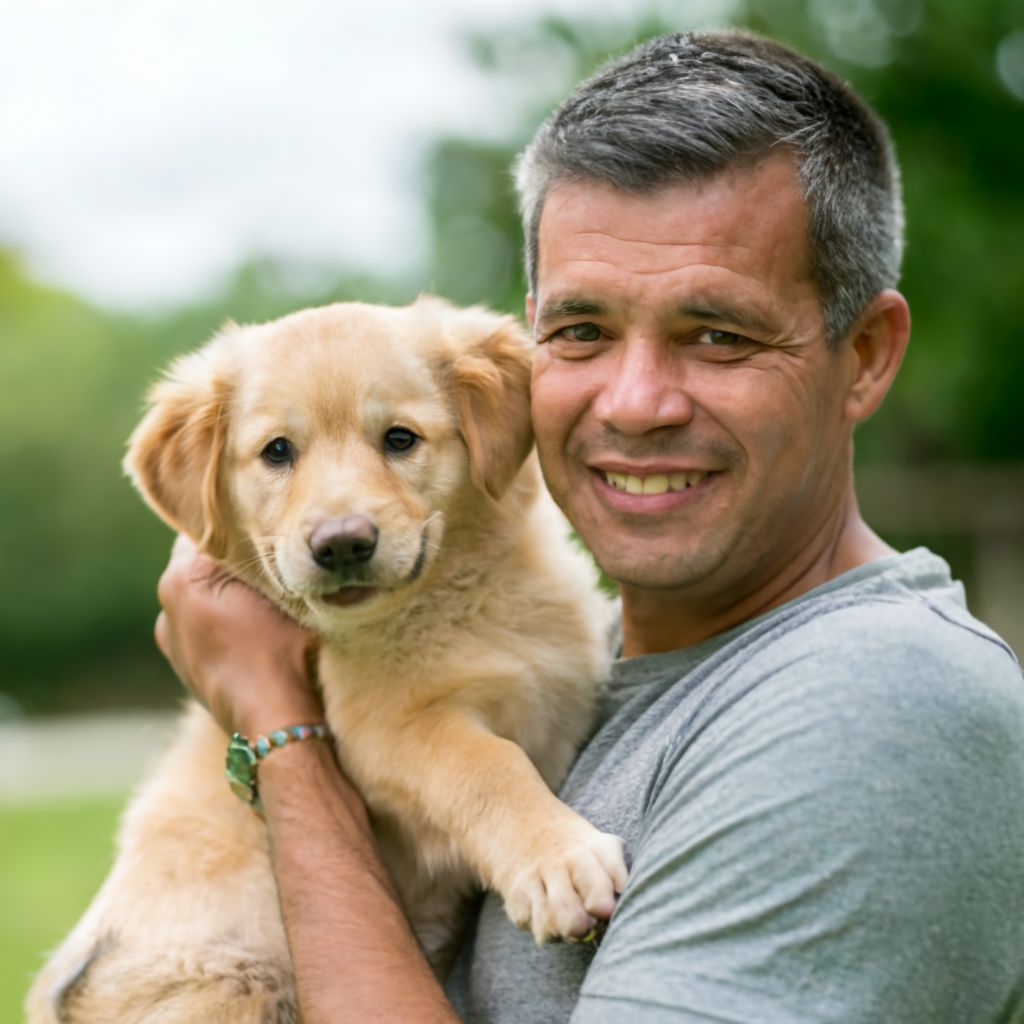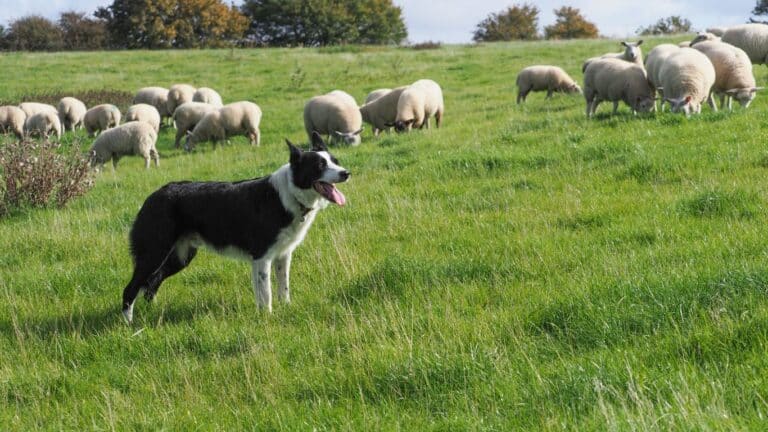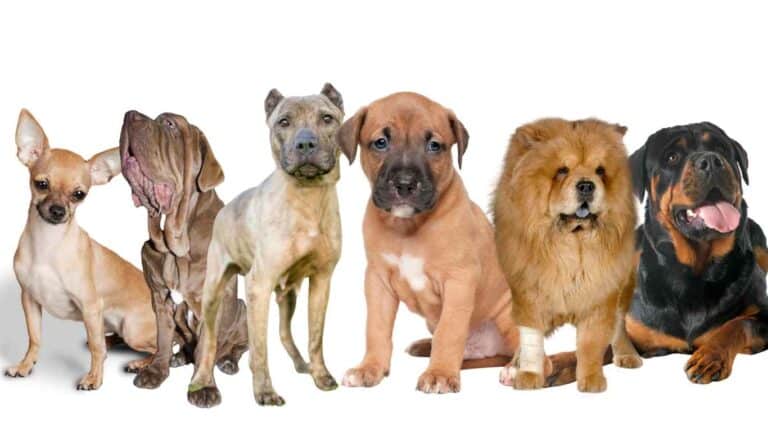Are Rottweilers Good with Kids? As a parent, you want to ensure that your children are safe and happy, especially when it comes to the furry friends they interact with. If you’re considering getting a Rottweiler as a family pet, you may have some concerns about their compatibility with kids. Let’s explore the topic from a parent’s perspective to help you make an informed decision.
Are Rottweilers Good With Kids?
The Perception of Rottweilers around Children
When it comes to rottweilers and children, there is often a prevalent perception that these dogs are aggressive or dangerous. This perception can cause concern and hesitation for parents considering having them around their children. However, it is crucial to recognize that the behavior and aggression of any dog breed are not solely determined by their breed alone. Instead, it is influenced by a variety of factors that include training, socialization, and individual temperament.
It is important to take a closer look at the rottweiler’s perception around children to understand the reality and dispel any misconceptions. Creating a safe and harmonious environment for both the dog and the child requires an understanding of these factors and how they shape the interaction between rottweilers and children.
“The behavior and aggression of any dog breed are not solely determined by their breed alone, but by various factors such as training, socialization, and individual temperament.”
To shed light on the perception of rottweilers around children, it is essential to consider the following factors:
Training:
Proper training plays a crucial role in a rottweiler’s behavior, regardless of their interaction with children. Training sessions that focus on obedience and positive reinforcement can help establish boundaries and teach the dog appropriate behavior when around children.
Socialization:
Effective socialization is necessary to introduce rottweilers to various environments, people, and situations from a young age. Positive exposure to children during socialization can help rottweilers develop a calm and friendly demeanor around kids.
Individual Temperament:
Just like humans, each rottweiler has a unique temperament. While some rottweilers naturally exhibit a gentle and patient nature around children, others may require more intentional socialization and training to feel comfortable and safe.
It is vital to remember that responsible ownership, proper training, and adequate socialization are crucial factors in fostering a positive relationship between rottweilers and children. By challenging misconceptions and understanding the importance of these elements in shaping behavior, parents can make well-informed decisions about having rottweilers around their children.
| Key Factors | Implications |
|---|---|
| Training | Proper training helps establish boundaries and encourages positive behavior. |
| Socialization | Exposing rottweilers to children during socialization helps them develop a calm demeanor. |
| Individual Temperament | Rottweilers have unique temperaments, requiring varying levels of socialization and training. |
Are Rottweilers Good with Kids?
When it comes to Rottweilers and their compatibility with children, the American Kennel Club (AKC) rates them as moderately good. However, many families have found Rottweilers to be gentle and affectionate towards their little ones. It’s important to take into consideration factors such as energy level, size, and the protective nature of Rottweilers when assessing their suitability for children.
Rottweilers, known for their strength and loyalty, can make great companions for kids. Their protective instincts often translate into a watchful and caring nature, making them a potential family favorite. However, their larger size and energy levels should also be considered when deciding if they are the right fit for your household.
Children should always be supervised when interacting with any dog, including Rottweilers. Proper guidance and education about how to approach and handle dogs can help foster a positive relationship between the child and the canine companion. Teaching children to respect the dog’s space and boundaries, as well as avoiding behaviors that may provoke them, is essential for their safety.
“Rottweilers have been amazing with my kids. They are attentive, gentle, and seem to have an innate sense of responsibility towards the little ones. They are protective without being overly aggressive, and I feel confident having them around my children.”
It’s crucial to note that responsible ownership, proper training, and socialization are vital in ensuring a positive experience with Rottweilers and kids. Consistent training helps establish boundaries and obedience, providing a safe and structured environment for both the dog and the child.
While Rottweilers can be good with kids, it’s essential to evaluate each individual dog’s temperament and compatibility with your family dynamics. Consulting with reputable breeders or rescue organizations can provide valuable insights into the dog’s history and behavior, increasing the chances of finding a kid-friendly Rottweiler.
With proper care, training, and supervision, Rottweilers can form loving bonds with children, creating lasting memories and cherished friendships.
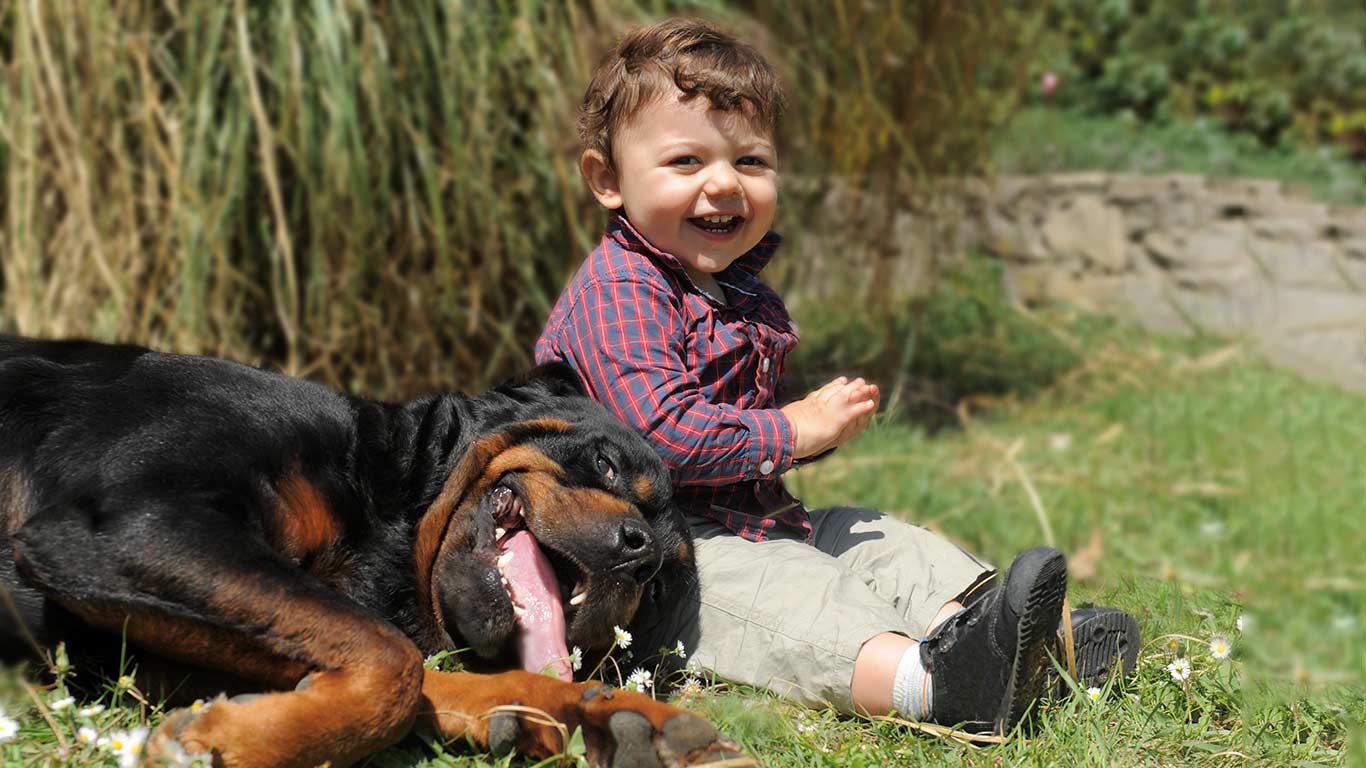
Factors Influencing Rottweilers’ Interaction with Kids
The temperament and behavior of Rottweilers around children can be influenced by various factors. These factors play a crucial role in ensuring a safe and positive interaction between the dogs and kids. Here are the key factors that can influence Rottweilers’ interaction with kids:
- Size: The size of a Rottweiler is an important consideration when it comes to their interaction with kids. Rottweilers are large, powerful dogs, and their size can sometimes be overwhelming for young children. It is essential to teach children how to approach and interact with dogs of this size in a calm and gentle manner.
- Energy Level: Rottweilers are known for their energy and strength. Their high energy levels can sometimes be challenging for children to handle, especially if the dog gets overly excited or playful. Providing regular exercise and mental stimulation is crucial to help keep a Rottweiler’s energy level balanced and manageable.
- Training: Proper training is vital for Rottweilers to ensure appropriate behavior around children. Obedience training, socialization, and teaching basic commands can help instill good manners and teach them how to interact safely with kids. Positive reinforcement techniques are highly recommended for training this intelligent and eager-to-please breed.
- Socialization: Socializing Rottweilers from a young age is essential to help them become comfortable and well-adjusted around children. Exposing them to different environments, people, and experiences can help reduce any potential anxiety or fear and promote positive interactions with kids.
Proper supervision and guidance are crucial when Rottweilers interact with kids. Both the dog and the child should always be monitored to ensure their safety and well-being. Teaching children how to interact respectfully with dogs and setting boundaries for both parties can create a positive and harmonious relationship.
“Rottweilers are intelligent and loyal dogs that can be great companions for kids when proper training and socialization are provided.”
| Factors | Influence |
|---|---|
| Size | Rottweilers’ large size can sometimes intimidate or overpower young children. |
| Energy Level | Their high energy levels require adequate exercise and stimulation. |
| Training | Proper training can ensure appropriate behavior and interactions. |
| Socialization | Early socialization helps Rottweilers become comfortable around kids. |
Choosing a Kid-Friendly Rottweiler
When considering getting a Rottweiler as a family pet, it is important to choose a kid-friendly dog that can integrate well into your household. Here are some key factors to consider when selecting a Rottweiler:
Assess the Dog’s Compatibility
Before bringing a Rottweiler into your home, it is recommended to choose an adult dog that has been assessed for its compatibility with children. This assessment can be done by rescue organizations, breeders, or experienced professionals who understand the breed’s temperament.
Consider Temperament and Socialization
Ensure that the Rottweiler you choose has a history of being good with kids. Look for a dog that demonstrates a calm and patient demeanor, as well as socialization experiences with children. This will help ensure a smooth integration into your family dynamic.
Seek Insights from Rescue Organizations and Breeders
Rescue organizations and reputable breeders can provide valuable insights into the dog’s behavior, temperament, and previous interactions with children. They can help guide you towards a Rottweiler that is well-suited for family life.
Remember, each Rottweiler has its own individual personality, so it is important to find one that aligns with your family’s needs and lifestyle. By choosing a kid-friendly Rottweiler, you are setting the stage for a positive and harmonious relationship between your children and your new furry friend.
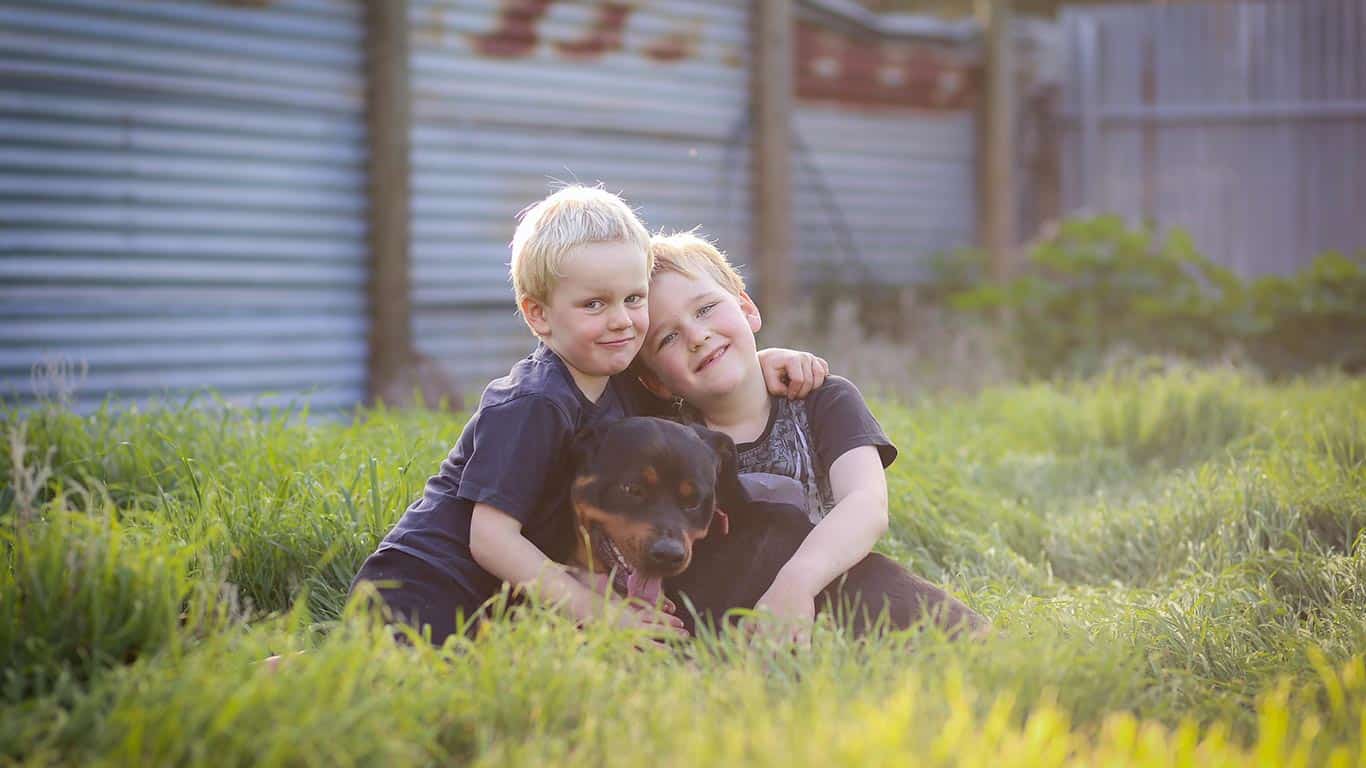
Socializing a Rottweiler Puppy
Socializing your Rottweiler puppy from an early age is crucial for their development and behavior around children. By exposing them to different people, including children, in a positive and controlled environment, you can help them become well-adjusted and comfortable around kids.
Introducing your Rottweiler puppy to children early on teaches them how to interact and play gently. It also helps them understand appropriate behavior around kids, such as not jumping, nipping, or showing any signs of aggression.
Here are some tips to effectively socialize your Rottweiler puppy:
- Start socialization at a young age: Begin exposing your puppy to children as early as possible, ideally between the ages of 3 and 12 weeks. This critical period is when puppies are most receptive to new experiences and can easily learn positive behaviors.
- Controlled interactions: Always supervise interactions between your puppy and children to ensure safety. Allow them to interact in a controlled environment, such as a secure backyard or a playroom, where both the puppy and children can play freely without any potential risks.
- Positive reinforcement: Reward your puppy with treats, praises, and affection for good behavior during interactions with children. This positive reinforcement helps your puppy associate children with positive experiences and builds a strong foundation for future interactions.
- Gradual exposure: Start with short and supervised interactions, gradually increasing the duration and complexity of the interactions. This helps your puppy develop confidence and adjust to different scenarios involving children.
Remember, each puppy is unique, and their socialization needs may vary. It’s essential to consider their individual temperament and adjust the socialization process accordingly. If you’re unsure about how to proceed, consult a professional dog trainer or behaviorist for guidance.
“Proper socialization sets the foundation for a well-behaved and sociable Rottweiler.”
| Benefits of Socializing a Rottweiler Puppy: | Consequences of Neglecting Socialization: |
|---|---|
| Develops trust and confidenceEnhances their ability to adapt to new environmentsPromotes positive behavior around childrenReduces fear or anxiety responsesPrevents aggression towards children | Fearful or anxious behaviorAggression or hostility towards childrenDifficulty acclimating to new environments or situationsLimited social skills with humans and other animalsIncreased risk of accidents or negative incidents |
The Importance of Training Rottweilers
Training plays a crucial role in shaping the behavior of Rottweilers, as it does for all dog breeds. It is essential to establish clear boundaries and teach obedience commands to ensure a harmonious and safe household. But why is training so important?
First and foremost, training helps in fostering a positive relationship between Rottweilers and children. By teaching them how to behave around kids, you can ensure that both your dog and your little ones are safe during interactions. Rottweilers are naturally protective, and with proper training, they can learn to be gentle and patient, even in more exciting situations.
Training also allows you to address any behavioral issues and instill good manners in your Rottweiler. Teaching them basic commands, such as “sit,” “stay,” and “come,” not only ensures their obedience but also helps in managing their interactions with children. By having control over your dog’s actions, you can prevent any potential accidents or conflicts with kids.
“Training provides the foundation for a well-behaved and well-adjusted dog, ultimately creating a positive environment for the entire family.”
Additionally, training helps in socialization, which is vital for Rottweilers to develop appropriate behavior around children. By exposing them to various environments, people, and situations, you can help them become more comfortable and confident. Socialization also helps in reducing fear or anxiety, thus contributing to a more pleasant and enjoyable experience for both your dog and your children.
The importance of training Rottweilers cannot be overstated. It is a key aspect of responsible ownership and ensures the safety and happiness of both your dog and your family. By investing time and effort into training, you can foster a strong bond between your Rottweiler and your children, creating a positive and harmonious relationship.
| Benefits of Training Rottweilers | Examples |
|---|---|
| Enhances safety during interactions with kids | Teaching your Rottweiler to play gently and respect personal space |
| Addresses behavioral issues | Correcting excessive jumping or nipping behavior |
| Improves socialization | Exposing your Rottweiler to children of different ages |
| Creates a positive and harmonious household | Establishing clear boundaries and commands |
Tips for a Successful Interaction between Rottweilers and Kids
When it comes to ensuring a positive and safe interaction between Rottweilers and kids, there are a few key tips to keep in mind. By following these guidelines, you can help foster a harmonious relationship between your furry friend and your little ones.
- Educate Children on Proper Behavior: Teach your children how to behave around dogs, including Rottweilers. Emphasize the importance of not pulling their ears or tail and avoiding approaching them when they are eating or resting. This will help establish boundaries and prevent any unwanted incidents.
- Supervise Interactions: Always supervise interactions between Rottweilers and kids, especially younger children who may not fully understand how to interact with dogs. This allows you to intervene if necessary and ensure that both the dog and child are safe.
- Create Designated Play Areas: Provide designated play areas for your Rottweiler and children where they can interact safely. This can be a backyard space or a specific room in your home. Having a designated area helps set boundaries and allows everyone to enjoy their playtime.
- Teach the Dog to Play Gently: It’s important to train your Rottweiler to play gently with children. Using positive reinforcement techniques, teach them to be aware of their size and strength when playing with kids. This will help prevent accidental injuries and ensure a positive experience for everyone involved.
“By following these tips, you can help create a safe and loving environment where your Rottweiler and kids can thrive together.”
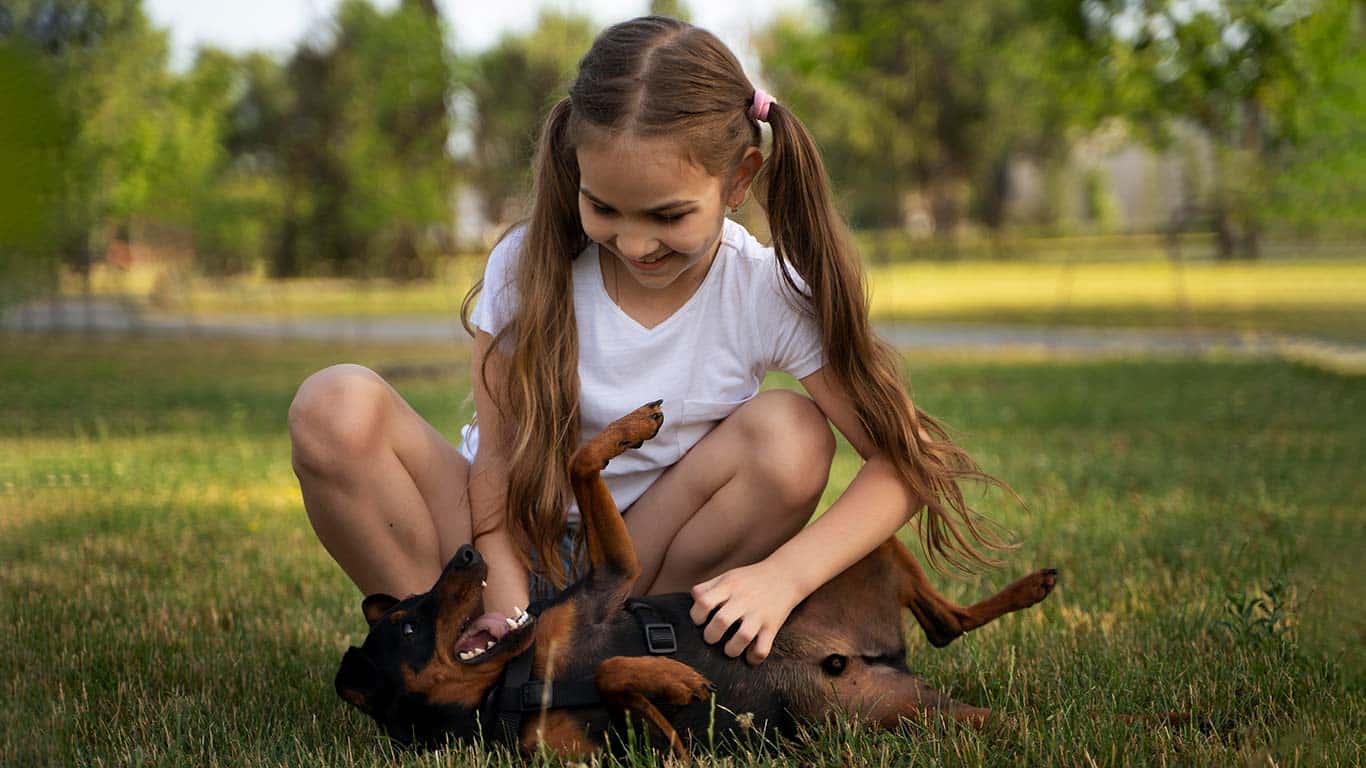
Remember, every dog is unique, and it’s important to assess your Rottweiler’s temperament and behavior around children individually. These tips serve as a general guide, but it’s essential to tailor them to your specific Rottweiler and family dynamic. With proper education, supervision, and understanding, a successful interaction between Rottweilers and kids can be achieved.
| Benefits | Considerations |
|---|---|
| Teaching children responsible pet ownership, Promoting empathy and respect towards animals, Fostering a loving bond between Rottweilers and kids | Potential risk of accidents or injuries, The importance of continuous supervision, Individual temperament variations in Rottweilers |
By following these tips and considering the benefits and considerations, you can nurture a positive and safe relationship between your Rottweiler and children. Ensuring a successful interaction is crucial for both the well-being of your furry friend and the happiness of your family.
Join the Pet Planet Diaries
Sign up for our newsletter to get the latest tips, stories, and exclusive insights into the wonderful world of pets.
Final Thoughts
Rottweilers can be good with kids, but it’s crucial for parents to consider their individual circumstances and take necessary precautions to ensure a positive and safe interaction. Responsible ownership is key, including choosing a Rottweiler with a compatible temperament and history of being good with children. Proper training and socialization are equally important to shape the dog’s behavior and foster a harmonious relationship with kids.
Supervision plays a vital role in the interaction between Rottweilers and kids. Teaching children how to behave around dogs, respecting the dog’s boundaries, and avoiding disruptive behaviors such as pulling ears or tail are essential. Creating designated play areas and promoting gentle play between the dog and child can help develop a positive bond.
Ultimately, the relationship between Rottweilers and kids can be a rewarding one, provided that parents prioritize the safety and well-being of both the child and the dog. By considering the breed’s temperament, practicing responsible ownership, and implementing proper training, Rottweilers can become loving and protective companions for children, fostering a lifelong bond based on trust and respect.
FAQ
Are Rottweilers good with kids?
Yes, Rottweilers can be good with kids if they are raised and trained properly. However, it is important to consider factors such as size, behavior, and supervision when deciding if a Rottweiler is a suitable family pet.
What is the perception of Rottweilers around children?
There is a common perception of Rottweilers as aggressive or dangerous dogs, which can make parents hesitant about having them around their children. However, it is important to note that the aggression of any dog breed is not solely determined by their breed but by various factors such as training, socialization, and individual temperament.
What factors influence Rottweilers’ interaction with kids?
The temperament and behavior of Rottweilers around children can be influenced by various factors, including their size, energy level, training, and socialization. It is important to provide proper supervision and guidance to both the dog and the child to ensure a safe and positive interaction.
How do I choose a kid-friendly Rottweiler?
When considering getting a Rottweiler as a family pet, it is recommended to choose an adult dog that has been assessed for its compatibility with children. Rescue organizations and breeders can provide insights into the dog’s temperament and socialization. It is important to find a Rottweiler that fits well with the family dynamic and has a history of being good with kids.
How important is socializing a Rottweiler puppy?
Socializing a Rottweiler puppy from an early age is crucial for their development and behavior around children. Allowing the puppy to interact with different people, including children, in a positive and controlled environment can help them become well-adjusted and comfortable around kids.
Why is training important for Rottweilers?
Training is essential for all dog breeds, including Rottweilers. It is important to establish clear boundaries, teach obedience commands, and promote positive behavior. Training helps shape the dog’s behavior around children and ensures a harmonious and safe household.
What are some tips for a successful interaction between Rottweilers and kids?
To ensure a successful interaction between Rottweilers and kids, it is recommended to teach children how to behave around dogs, such as not pulling their ears or tail and not approaching them when they are eating or resting. Additionally, supervising their interactions, providing designated play areas, and teaching the dog to play gently can all contribute to a positive relationship.
What are some important considerations for parents?
While Rottweilers can be good with kids, it is important for parents to carefully consider their individual circumstances, including the dog’s temperament and proper supervision. Responsible ownership, training, and socialization are key factors in fostering a positive and safe relationship between Rottweilers and children.
With a passion for canine companionship and a wealth of experience spanning 15 years, Dan Schroeder stands as a distinguished authority in the realm of dog health, training, and beyond.
From an early age, Dan found solace and joy in the company of four-legged friends, sparking a lifelong dedication to understanding and enhancing the lives of dogs. His journey into the world of canine expertise began over a decade and a half ago, marked by a relentless pursuit of knowledge in the fields of dog health, behavior, and training.


